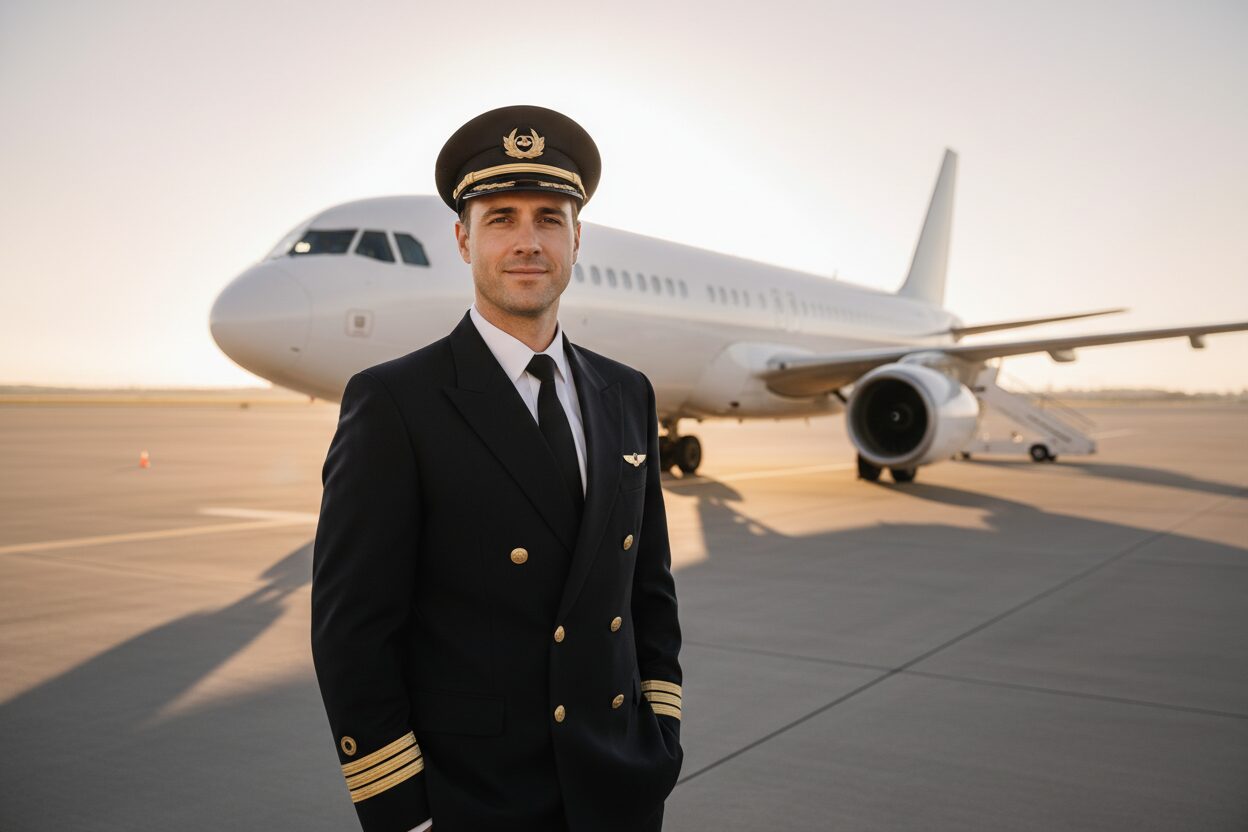A career as a pilot often appears very appealing at first glance. The opportunity to soar above the clouds, explore different countries, and connect with many people at diverse destinations sounds fascinating. Popular stories highlight inspiring journeys, such as individuals rising from humble beginnings to become pilots or heroic moments where pilots safely land planes in emergencies. While a pilot career looks promising on paper, it also comes with its own challenges and drawbacks.
If you’re contemplating whether becoming a pilot is worth it, understanding the advantages and disadvantages can help you make a well-informed decision.
Table of Contents
Pilot Career Benefits
A career in aviation can be highly rewarding and fulfilling in multiple ways. Here are some notable benefits:
- Attractive salary: Pilots are generally well compensated, with salaries increasing substantially as experience and rank grow. Although entry-level pay such as at regional airlines may be modest, seasoned pilots flying larger aircraft can earn salaries upwards of $200,000 annually.
- Excitement and adventure: Each flight offers a unique experience from igniting engines to admiring breathtaking views like stunning sunsets or turbulent skies. This dynamic environment keeps the profession engaging over time.
- Travel opportunities: Pilots get to explore new places regularly. Many airlines also offer crew travel benefits, allowing pilots to book discounted tickets during their off-duty time, making global travel more accessible.
- Personal satisfaction: Milestones like completing your first solo flight or landing at a new destination provide a great sense of achievement. The process of mastering complex skills through years of dedication is genuinely rewarding.
- Continuous learning: Aviation technology and regulations continually evolve, so pilots must keep updating their knowledge and skills. This ongoing learning keeps the career intellectually stimulating and ensures safety.
Flying an aircraft combines financial rewards with mental stimulation and adventure, making it a unique and captivating profession.
Pilot Career Drawbacks
Despite its many benefits, a career as a pilot also has challenges that candidates should carefully consider:
- High upfront costs: Training to become a commercial pilot is expensive. Programs can cost upwards of $60,000 to $100,000, excluding additional expenses like medical exams, licensing fees, accommodations, and living costs during training.
- Steep learning curve: Obtaining a pilot license involves passing numerous exams and accumulating flight hours on simulators and smaller aircraft. This process takes significant time and financial investment, particularly if not enrolled in structured cadetship programs.
- Irregular schedules and missed family events: Airline rosters often require pilots to work nights, weekends, and holidays. This can mean missing important family occasions such as birthdays and holidays, complicating family life and social commitments.
- Stressful responsibilities: Pilots carry the safety of hundreds of passengers. Even with rigorous training, unpredictable situations can occur, sometimes leading to traumatic experiences that impact mental health.
- Career vulnerability due to health: Pilots must maintain medical fitness. Losing the medical certificate due to health issues can abruptly end a pilot’s career, regardless of years of experience.
While these downsides are significant, they do not diminish the overall value and excitement associated with flying, provided one is prepared for these realities.
Is Becoming a Pilot Worth It?
Given the high costs, intense training, and lifestyle challenges, deciding to become a pilot requires careful consideration. However, the passion for flying combined with the rewarding nature both financially and personally makes it a dream career for many. Stress and health risks exist in most professions, but they can be managed with proper preparation and support.
For those willing to invest time, money, and effort, the career path offers remarkable opportunities to explore the world from above and achieve professional satisfaction.
Frequently Asked Questions
How long does it take to become a commercial pilot?
The training process typically takes 1 to 3 years, depending on the country, training program, and individual pace. It includes ground school, flight training, simulator hours, exams, and accumulating required flight hours before being eligible for a commercial pilot license.
What is the initial cost of pilot training?
Costs vary widely but generally fall between $60,000 and $100,000 to complete initial commercial training, including license and exam fees, medical certification, and living expenses during training.
Do pilots have to travel a lot?
Yes, pilots frequently travel to various destinations as part of their job. Additionally, many airlines offer discounted travel options for pilots during their off-duty time.
Is a pilot’s job stressful?
Flying involves high responsibility for passenger safety, which can be stressful. However, pilots are well trained to handle emergencies and maintain professionalism under pressure.
Can a pilot lose their job due to health problems?
Yes, maintaining medical fitness is mandatory. Loss of medical certification due to health issues can result in an immediate career halt, though some airlines offer insurance to mitigate this risk.
Final Thoughts
Choosing to become a pilot is not just a career decision, it is a lifestyle choice that demands dedication, discipline, and resilience. The journey may be challenging, but for those who are passionate about aviation, the rewards can be truly remarkable. Pilots get to travel the world, work with advanced technology, and build a respected professional identity.
For individuals willing to invest effort and embrace the unique lifestyle that comes with the profession, aviation can offer more than just employment. It can become a lifelong passion and a way to experience the world from a perspective that very few people ever witness. A pilot career is not simply about flying an aircraft, it is about growth, responsibility, pride, and the pursuit of an extraordinary journey in the skies.

